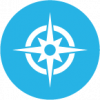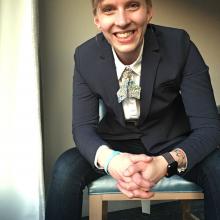Wordswordswords: The peripandemic imperitive for periapsis in (y)our professional word praxis
Concurrent Session 9

Brief Abstract
Join three language nerds as they channel their shared affinity for le mot juste into productive provocations for you and (y)our professional colleagues to consider when it comes to describing what we do and its value to the world.
Presenters


Extended Abstract
Words regularly betray us in our education-related work. As a global pandemic endures and public scrutiny of educational discourse only increases, we find ourselves in a reactive stance toward novel appropriations of institutionalized-yet-vague word choices in the best cases and ridiculed for the initialisms/acronyms that are easily exploitable BECAUSE of their efficient-for-few-but-obtuse-for-many nature. We can build a better vocabulary. We can communicate closer to meaning. If not, we deserve the limited words we are left with.
Join three language nerds as they channel their shared affinity for le mot juste into productive provocations for you and (y)our professional colleagues to consider when it comes to describing what we do and its value to everybody else.
In this express workshop, we will explore the un/settled rhetorical situations that riddle the discourse of digital teaching/learning and descend into the unintended consequences of having language we don’t sufficiently own and defensively owning language we should set free. During our brief time together, attendees may expect the following:
- Working with others to playfully-yet-systematically analyze the commonplace words of (y)our fields, disciplines, and workplaces—occupied by those who would probably benefit from this express workshop
- Fortifying a coherent poetics to buoy artful teaching/learning practices—what many of us care the most about and others should
- Developing an enhanced vocabulary that is mindful of audience yet unapologetically of its author(s)—those of us participating in the express workshop
At the very least, you will walk away with a new sense of what is possible for our professional languaging and a refined vocabulary list to help you tell your educative story.


